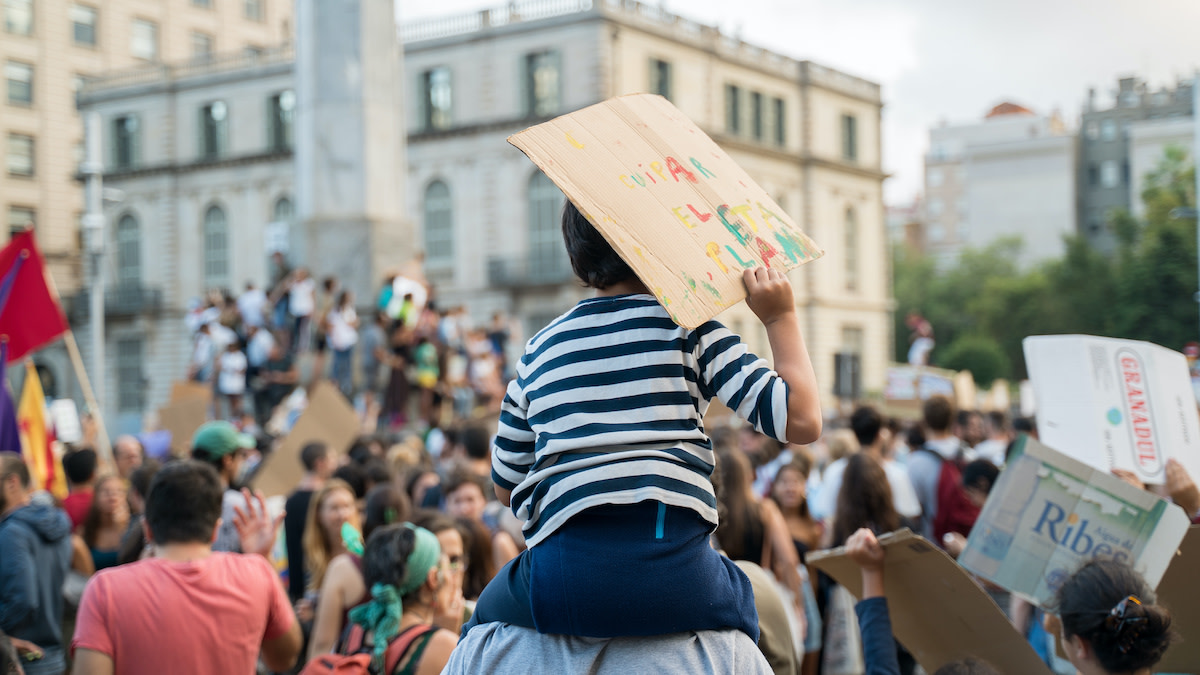What Is Social Change? How to Change Society for the Better
Written by MasterClass
Last updated: Sep 6, 2022 • 4 min read
Throughout history, hosts of different forces—from collective movements to seemingly random circumstances—have upset the status quo and revamped the entire social order. Learn more about what social change is and how to direct it in a beneficial direction.
Learn From the Best
What Is Social Change?
Social change occurs whenever some force disrupts and alters the cultural norms, economic realities, or other far-reaching circumstances of a given period or place.
For example, during the Industrial Revolution of the nineteenth century, technological innovations led to factories replacing farmland as the preeminent means of production and economic well-being for western societies. Around the same time, other societal changes led to the rise of the women’s rights and gender equality movement, as well as calls for the abolition of injustices like slavery.
Even in modern society, social change continues to happen on a regular basis. While academics in the social sciences might all have different opinions as to why this change occurs, no one disagrees that it occurs. Activists of all kinds—all of whom might share different opinions about what needs to change in society—also do their best to shape and influence these changes in the direction they see fit through both individual and collective action.
5 Causes of Social Change
Understanding social change requires looking at what leads society to shift in the first place. Consider these five key causes of social change:
- 1. Collective action: There’s strength in numbers, as evidenced by how often large groups of people have changed the world around them through concerted action. As an example of this sort of social change in practice, consider the success of the 1960s civil rights movement. Leaders like Dr. Martin Luther King, Jr., empowered wide swaths of people to engage in boycotts, marches, and other forms of active social organization. This eventually led to desegregation and greater civil and voting rights protections for people of color.
- 2. Economic change: The financial status or well-being of a society can greatly influence the likelihood of social change, for better or for worse. For example, the Great Depression’s effect on the global economy indirectly led to both the New Deal in the United States and the rise of the Nazis in Germany. Similarly, the industrialization of the nineteenth century disrupted social relations in both negative and positive ways—increasing the standard of living for some people who could take advantage of its technological innovations while lowering it for those who could not.
- 3. External forces: Human societies have some control over their own destinies, but every social group still falls prey to external forces at times. In the present day, climate change lurks on the horizon as a potential harbinger of unavoidable societal change. Some sociologists also turn to evolutionary theory to suggest human beings have less control of their own behavior and social relationships than they might think, referring to the possibility of biological determinism.
- 4. Individual impact: Sometimes a single person can shift the value system of a given epoch, at least in part. Charismatic leaders of both benevolent and evil intent have latched on to social issues to inspire change in positive and negative directions. They propose alternative systems—making a differentiation between how things are and how they could be—and encourage the masses to implement their visions.
- 5. Technological innovations: The diffusion of new technologies often represents the first step into a new social epoch. Technological change can radically alter social institutions. For instance, with the advent of modern medicine, pharmacological interventions and other forms of health care eradicated or successfully treated many previously severe or fatal diseases.
How to Enact Positive Social Change
You can take action as an individual to advance human rights causes and influence social change in a positive direction. Keep these tips in mind as you do your part to change the world for the better:
- Engage in individual activism. Cultural change starts one person at a time. While group mobilization might have more of an effect in general, you can still do your own small part by engaging in individual activism. Consider volunteering with or donating to nonprofits working to make a difference in the world.
- Have conversations. To influence the wider world, start by having conversations with people of different demographics. Through human interaction like this, you’ll learn more from others about the changes they hope to see in their lifetime, and you can share your own goals, too.
- Keep up with social trends. Try to remain aware of the changes already happening all around you. Things like globalization, urbanization, modernization, and population growth are causing social changes and upheavals in the present day. Similarly, environmental changes will also affect the wider world. Staying up-to-date on changes outside your control helps you discern the possible changes within your scope of influence.
- Join in with social movements. Do your best to make your own advocacy part of a wider social cause. For instance, the civil rights movement made great strides toward justice for people of all races and ethnicities due to the sheer strength of numbers it possessed. The more people behind a cause, the more likely it is to change the existing social structure.
- Study different theories. Sociologists all have different opinions as to what brings about social change. For example, functionalist theory differs from conflict theory, and theorists like Émile Durkheim, Karl Marx, and Max Weber all promulgated widely influential yet disparate opinions about how potential social change becomes a reality. Engaging with these theories will help better inform your own approach to activism.
Want to Make an Impact on Your Community?
You don’t need a big platform to make a difference. Gain access to the MasterClass Annual Membership for exclusive lessons from Malala Yousafzai and learn how your small actions can help build a movement.
